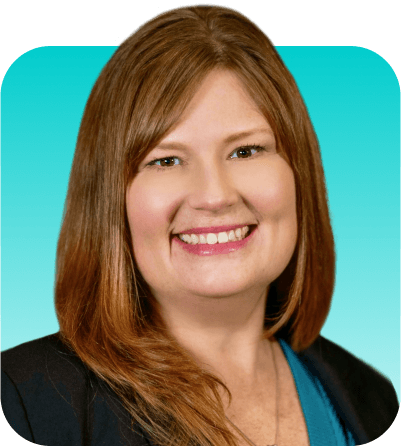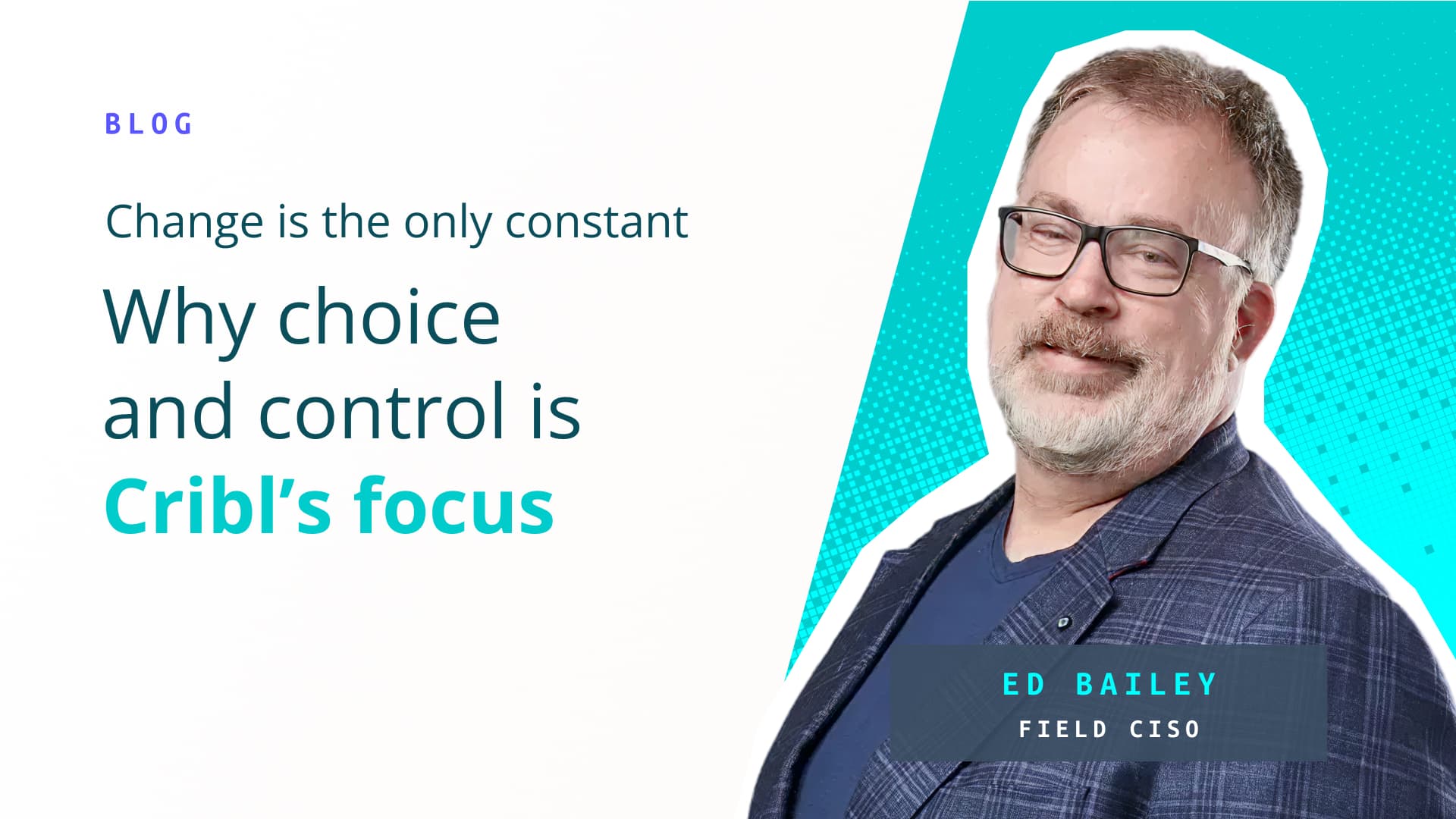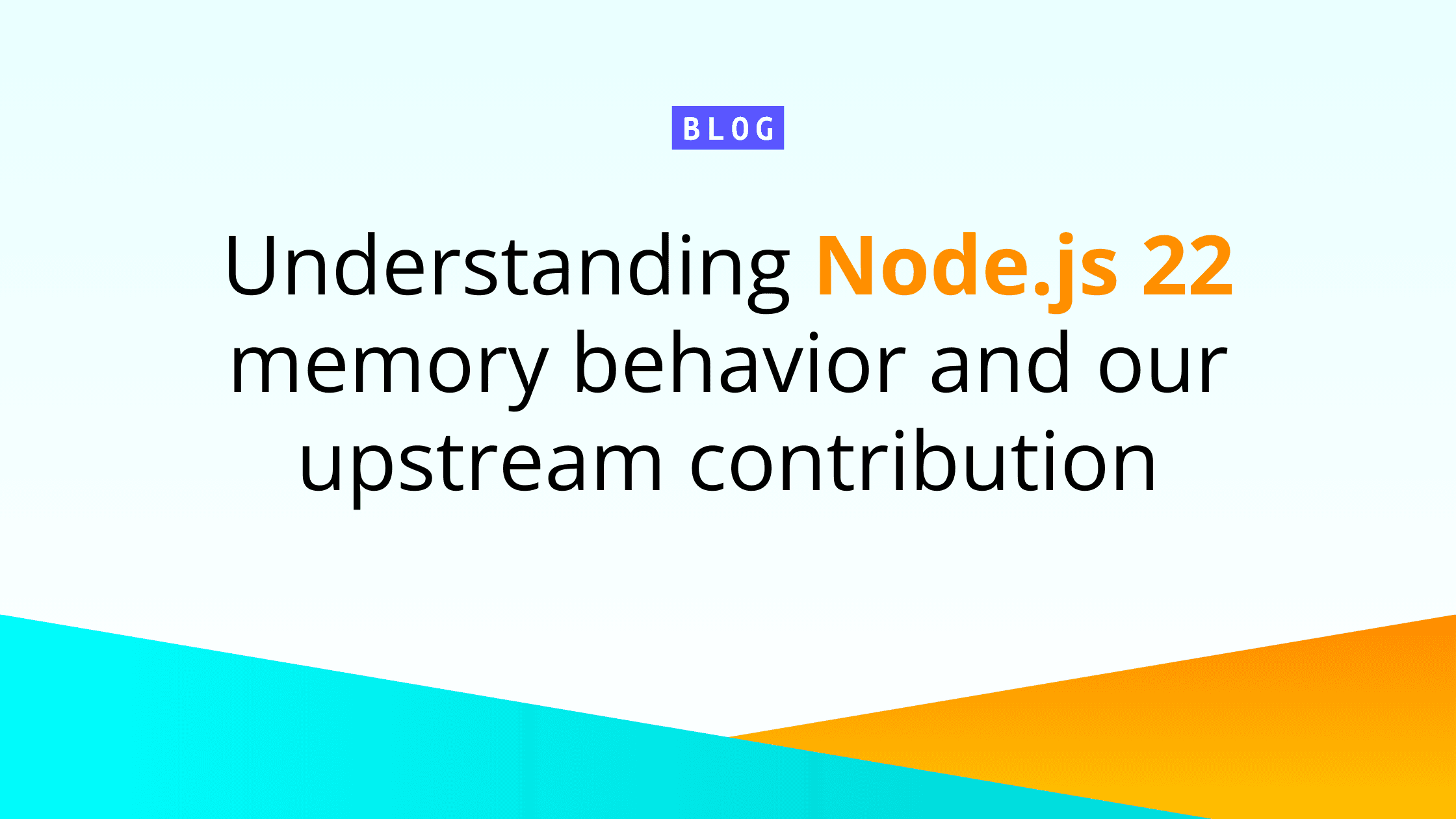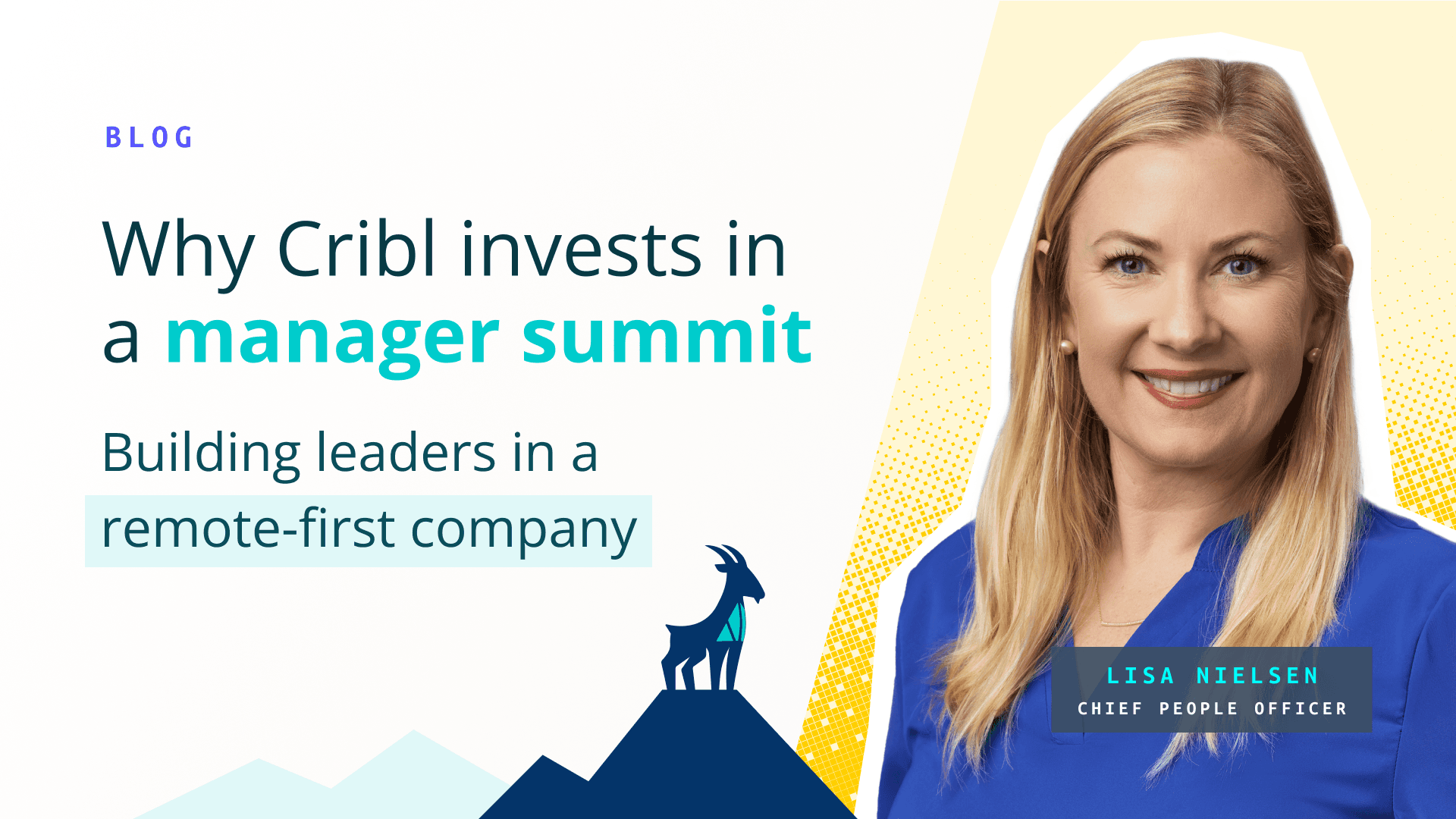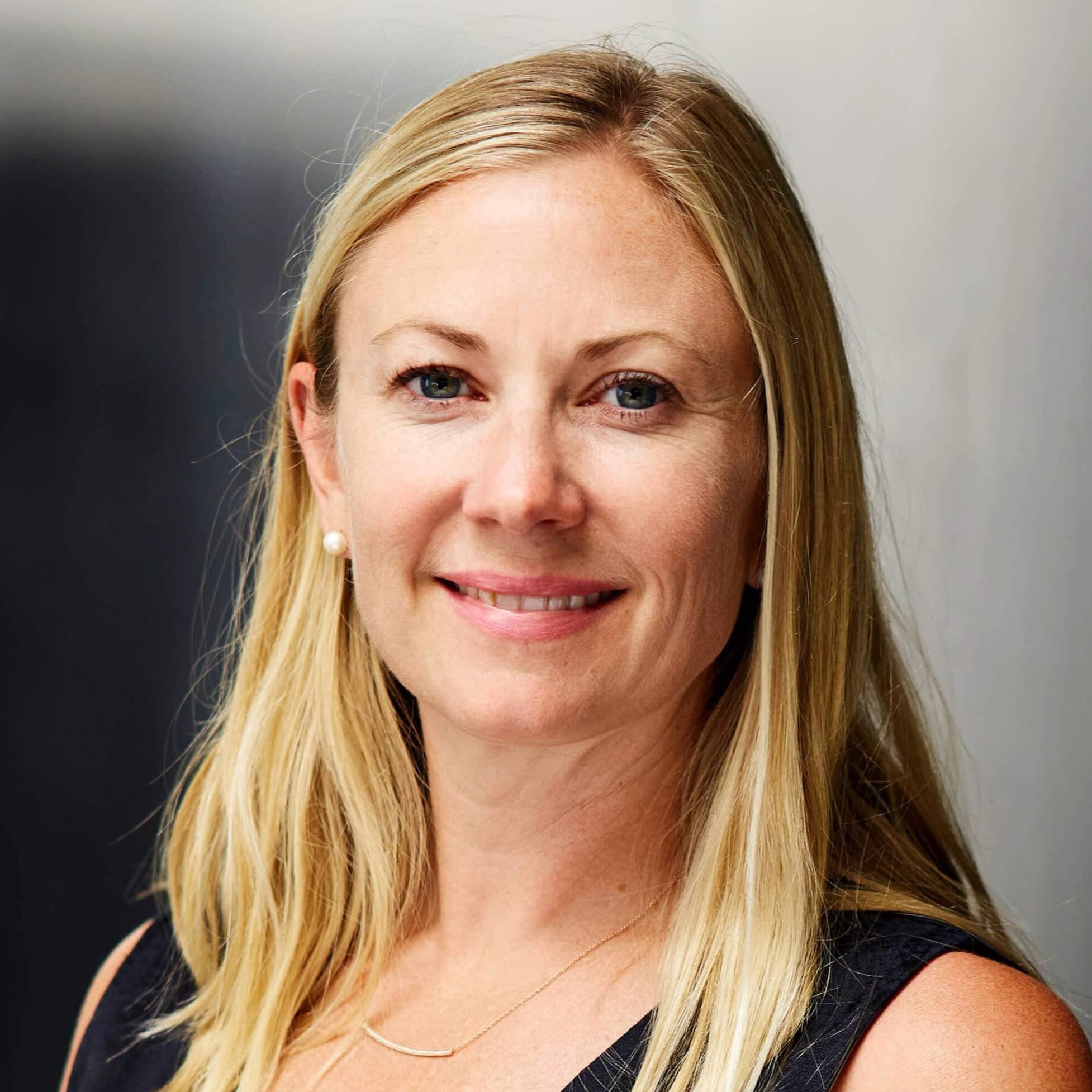When I first joined Cribl late last summer, I remember hearing about how it was a remote-first company and thinking to myself, “Well that sounds nice.” 20 years into a career in tech, I am used to working from a combination of formal offices, airplanes, and hotel rooms, and of course had just spent the first half of the year working remotely like the rest of the world. I really didn’t spend much time thinking about it at all, to be honest. The idea of continuing my no-commute life seemed like an awesome perk, and so instead I concentrated on all the ways to grow a marketing team and pipeline.
Building a Remote-First Team
My first major focus was to start assembling a team of rockstars at Cribl. I realized pretty quickly that I had always built remote-friendly teams. It is wonderful to be able to find the best human for the job and hire that person, regardless of whether s/he is geographically co-located with an office or simply a road warrior. However, unlike in previous companies, Cribl made a commitment to everyone being remote-first. This means that even in the future, when the pandemic is over, we won’t see a conference room full of folks and a couple of stranded individuals trying desperately to participate via the lone Polycom. It also means that we document decisions, and we go out of our way to assure alignment by recording meetings and making information available to all. We also provide a stipend to invest in a remote-friendly workspace, and we absolutely set aside time to joke and bond in between smiling at our Zooms. Despite all the info out there about how a remote-first culture can contribute to a better work/life balance, reduce commute stress, save significant money (both for the company AND for the employees), and even reduce environmental impact, it still didn’t really hit me that my location was completely decoupled from my place of work.
Changing it Up
The pace at Cribl is fast, to say the least. I feel like “hyper-growth” is one of those terms that gets tossed around by lots of folks when referring to startups, despite it being fairly loosely defined. Reminds me of Cloud, or even Observability – terms that tend to get defined by the user rather than the actual market definition. Regardless, it was my first time jumping into a true “hyper-growth” situation, and the stress level was high as I was calibrating to a new market, a new team, and trying to keep up with all the incoming demands. Under normal circumstances, this is a totally normal and expected transition into a new company. But, last fall was far from normal. In California in particular, we saw the few freedoms of Summer 2020 turn into tighter and tighter restrictions when the pandemic took hold with even more vengeance as we progressed into Fall, and all of a sudden the combination of trying to be a parent, teacher, playmate, co-worker, and leader all at once created an incredibly stressful environment. My husband and I looked at each other one night over the holidays and said, “We have got to change it up.” That evening, I started looking online for where we could safely take our kids and escape the madness for a while. I remember sending a Slack message to our CEO, Clint, saying, “Do you care if I relocate where I’m working from for a while?”, and his reply was so perfect it stuck with me: “I don’t even know where you are now.”
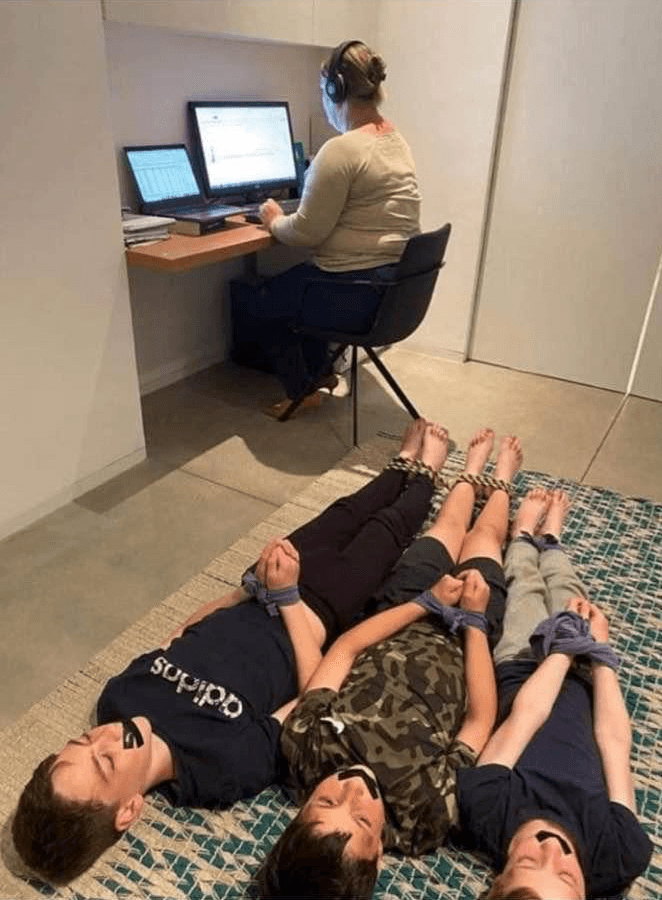
*Note: not actually a picture of where I was right then, but could have been. This woman speaks to my heart 😉
So we decided on Hawaii, first for a week of vacation/Spring Break, and then for three additional weeks of remote work and school. And holy moly all, it was awesome. The time change worked in my favor, being an early bird already. Was it hard some mornings to have my hair brushed, makeup on, and a smile by 5am? Sure. But it also meant being able to take my Zooms from a lanai looking at the ocean and come 2:30 or so, having the opportunity to embrace pau hana for a while and take the kids to the beach, to the tide pools, on adventures around the island…or sometimes happy hour (Don’t judge; the kids love half-price calamari ;-). What last month really taught me, though, is that remote working gives us an opportunity to define what is important to us, and then shape our work routines to not just reflect our priorities, but encourage them. For the first time in more than a year, I was completely in charge of my time and space, and it felt amazing.
Making Remote Work
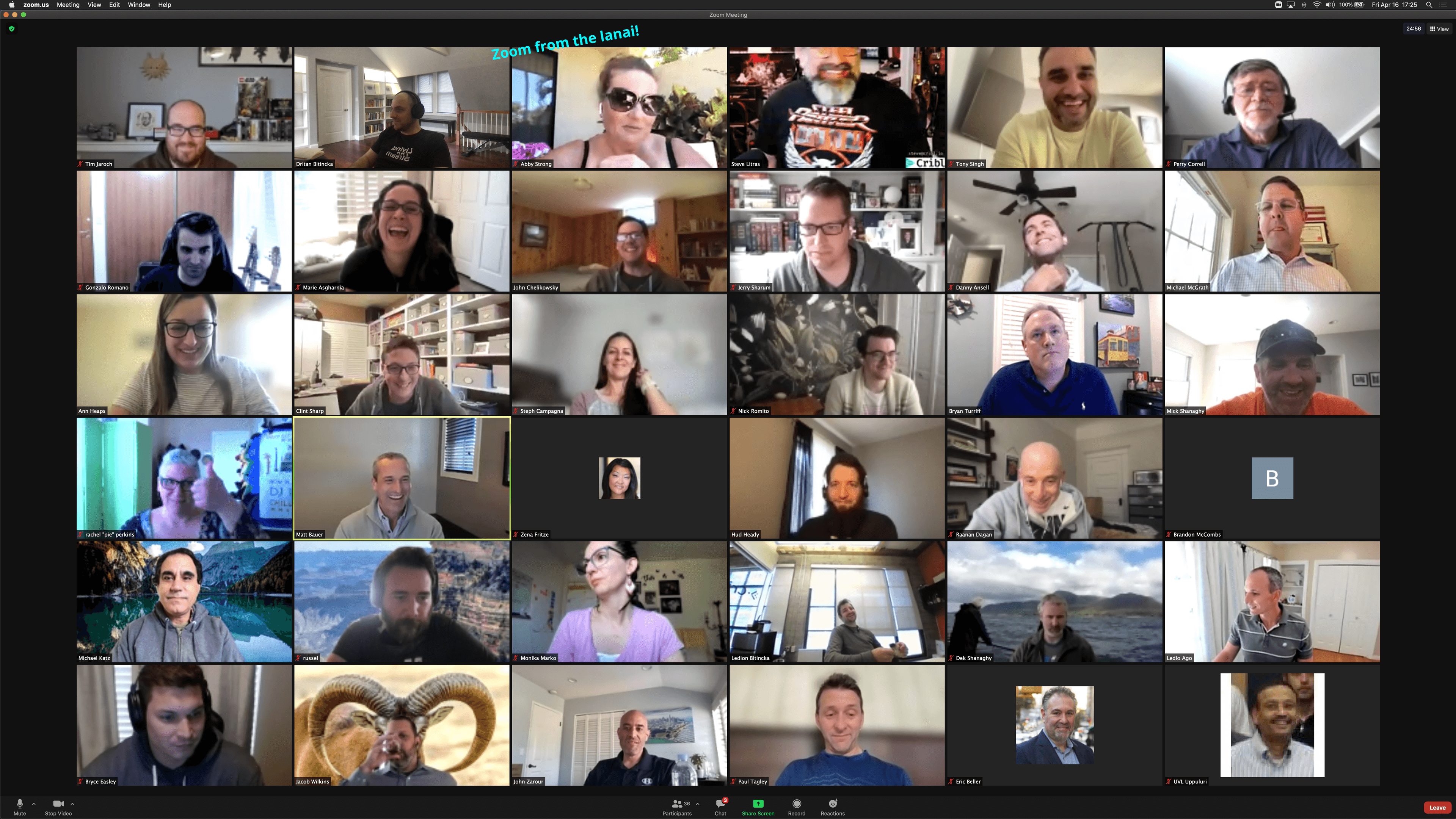
That said, remote-first life does come with some important guidelines:
Communication is Paramount. Overcommunication is the key to success when everyone is remote and bouncing from meeting to meeting. Often, many of us are balancing a group meeting in Zoom and a conversation or two in Slack concurrently. It’s important to be great at chat, including conveying emotion, but equally so to understand that’s an assumption of synchronous communication, and that timezones/priorities don’t always allow for that. Moving the conversation to the appropriate tool is actually a skill, too. In addition, being able to have positive – and if needed, negative – conversations with a cool head even without being in the same place as someone else is a hard requirement. It’s also important to be very explicit when decisions are made during any form of communication, and then document them. This leads to the second guideline:
Document Everything. Writing is a critical skill here at Cribl. Of course writing content is important, especially in Marketing, but writing down decisions, documenting the reasoning behind a strategy, and even taking meeting notes are also necessary. We use collaboration tools like Jira and Trello to show folks what’s in process or upcoming in our queue. We also make sure slides from meetings are shared, even to folks who weren’t invited to attend a particular meeting, and often recordings are available too. We promote this with one of our core values, Transparency, in the spirit of keeping everyone aware of what’s going on across the company. Ultimately, though, if there’s ever a question – write it down and pin it for a future conversation.
Block (and respect) Calendars. One thing that can quickly get out of control in a remote-first culture is the assumption that you have to be “always available.” A work-life balance isn’t balanced at all if there’s no end time. Making sure to clearly label when you’re available, what timezone you’re in (or working in, as in my case above), and blocking time for lunch, other commitments, etc., creates a way for folks to easily see the times you’ve set aside for communication and collaboration. It’s also important for mental health, and to create space for creative or heads-down activities. A useful tool some of us have adopted here is called Clockwise, which helps manage a busy schedule by moving meetings to blocks to open up focus time. One of the truly great parts of remote life is having a life 🙂
Create a Workspace. Another important component of successful remote work is a dedicated workspace. While many of us struggled through the early months of the pandemic with a laptop balanced on cereal boxes and fought over bandwidth, that’s really not conducive to long-term successful remote work. Find space for a desk area, invest in some good headphones, and check your ergonomics. Cribl offers employees an allowance to invest in a remote office, and a monthly stipend to cover internet/phone access. My first investment was a sit/stand desk to mimic what I was accustomed to in prior office environments, and noise-cancelling headphones (critical with three kids doing remote school! ;-).
Remote-First doesn’t equal Remote-Only. One of the common misconceptions about remote-first life is that it’s all remote. While the pandemic forced us all to stay away from each other for a much longer-than-anticipated period, that’s really not the long-term intention. There is already a Cribl office space in San Francisco where employees can congregate for meetings, and as we grow the team in other cities, we’ll open up pods there, too. We also plan for in-person meetings in varying groups throughout the year. And of course, with our Customers-First principle, we’ll be on the road with our customers, channel partners, and ecosystem friends as soon as it’s deemed safe. Currently, we’re all anxiously anticipating our Cribl All-Hands in San Diego towards the fall!!
Now as I look to the future, and what this real remote-first commitment brings to our culture, I am so excited to talk to employees and potential hires about all the great aspects, including how we communicate, how we collaborate, and how we work together to build the very best Cribl, no matter where people live or work. If this sounds awesome to you, please take a look at https://cribl.io/careers/ to see where you fit! As a company, we strive to offer the best remote experience possible, with the ultimate flexibility and freedom to live and work wherever we want – including beautiful Maui. Aloha!!

